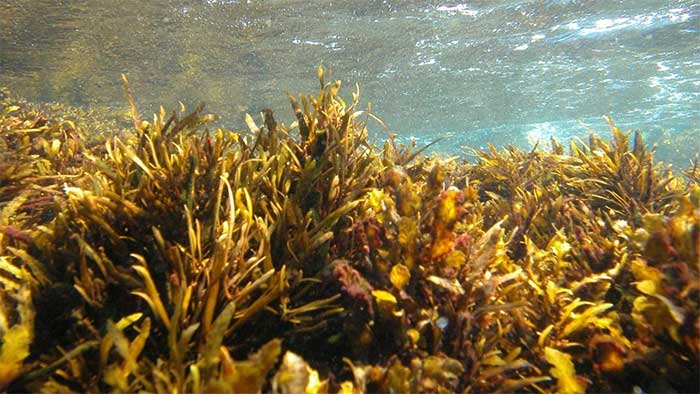According to a research study published on September 25, brown algae (kelp) found exclusively in the marine area of South Australia contains anti-aging properties.
The research conducted by scientists from Flinders University in South Australia discovered that brown algae is rich in antioxidants that can prevent the decline of collagen and elastin in humans. Elastin is a type of protein that provides elasticity in connective tissue, similar to collagen, allowing tissues to return to their original position after being stretched or compressed.

Extract of brown algae may help slow down the aging process of human skin. (Photo: adelaidenow.com.au).
Co-author of the study Wei Zhang from the School of Medicine and Public Health at Flinders University stated that extracts of brown algae from South Australia could help slow down the aging process of human skin. According to the scientist, collagen is a protein that contributes to the structure of bones, joints, skin, muscles, and connective tissue, while elastin provides skin with its elasticity. Both proteins are touted by the beauty industry as essential for healthy skin.
The researchers evaluated the anti-aging properties in extracts of three types of brown algae from South Australia. The results showed that they stimulate collagen production and inhibit the process of glycation, which leads to the decline of collagen and elastin. Glycation occurs when sugar binds with proteins in the skin, such as collagen and elastin, causing these proteins to become denatured. As a result, the skin loses its elasticity, increases stiffness, and forms wrinkles, while the skin’s barrier function is compromised, leading to aging.
According to the study, the marine area in South Australia is home to the most diverse seaweed species in the world, with 1,500 known species, over 50% of which are unique to this region. Researcher Wei Zhang believes that seaweed is a source of bioactive compounds with the potential to be incorporated into natural skincare and health products.
The Australian Seaweed Institute (ASI) suggests that the seaweed farming industry in the country could generate AUD 1.5 billion (USD 963.9 million) annually by 2040 and create 9,000 jobs.



















































